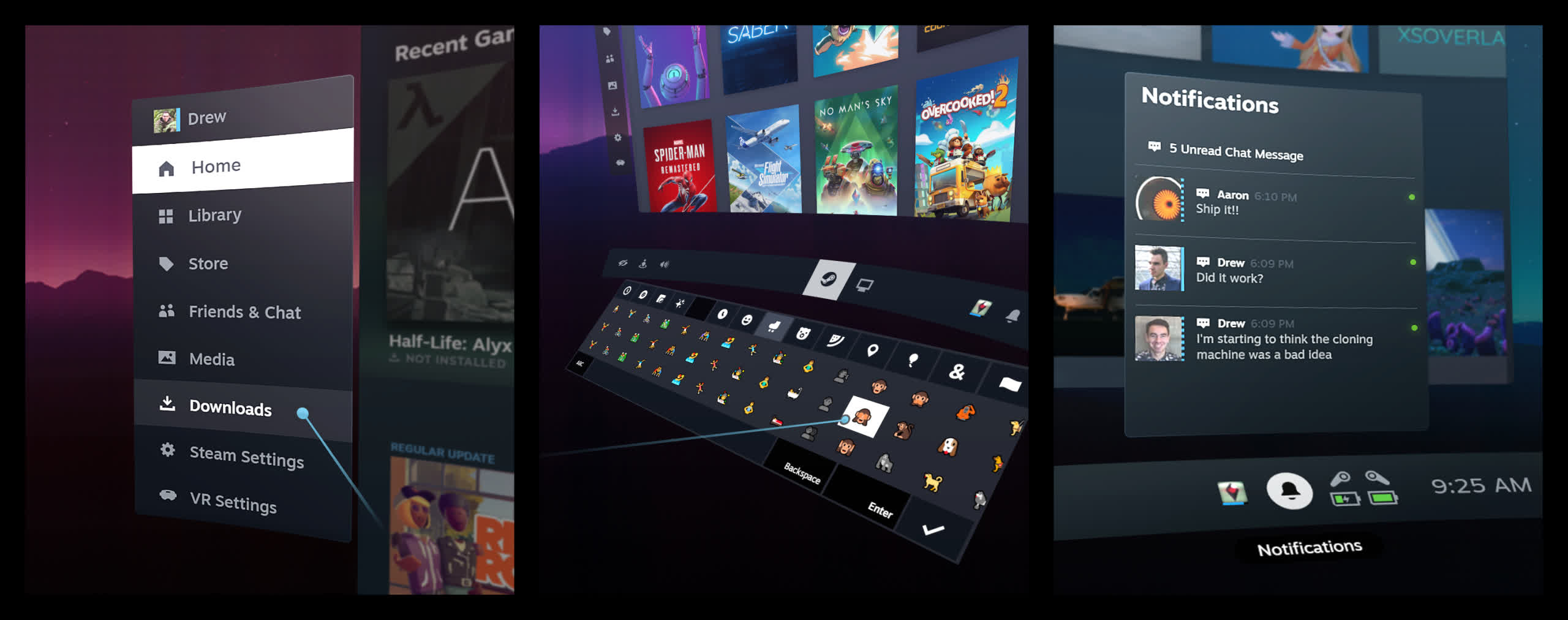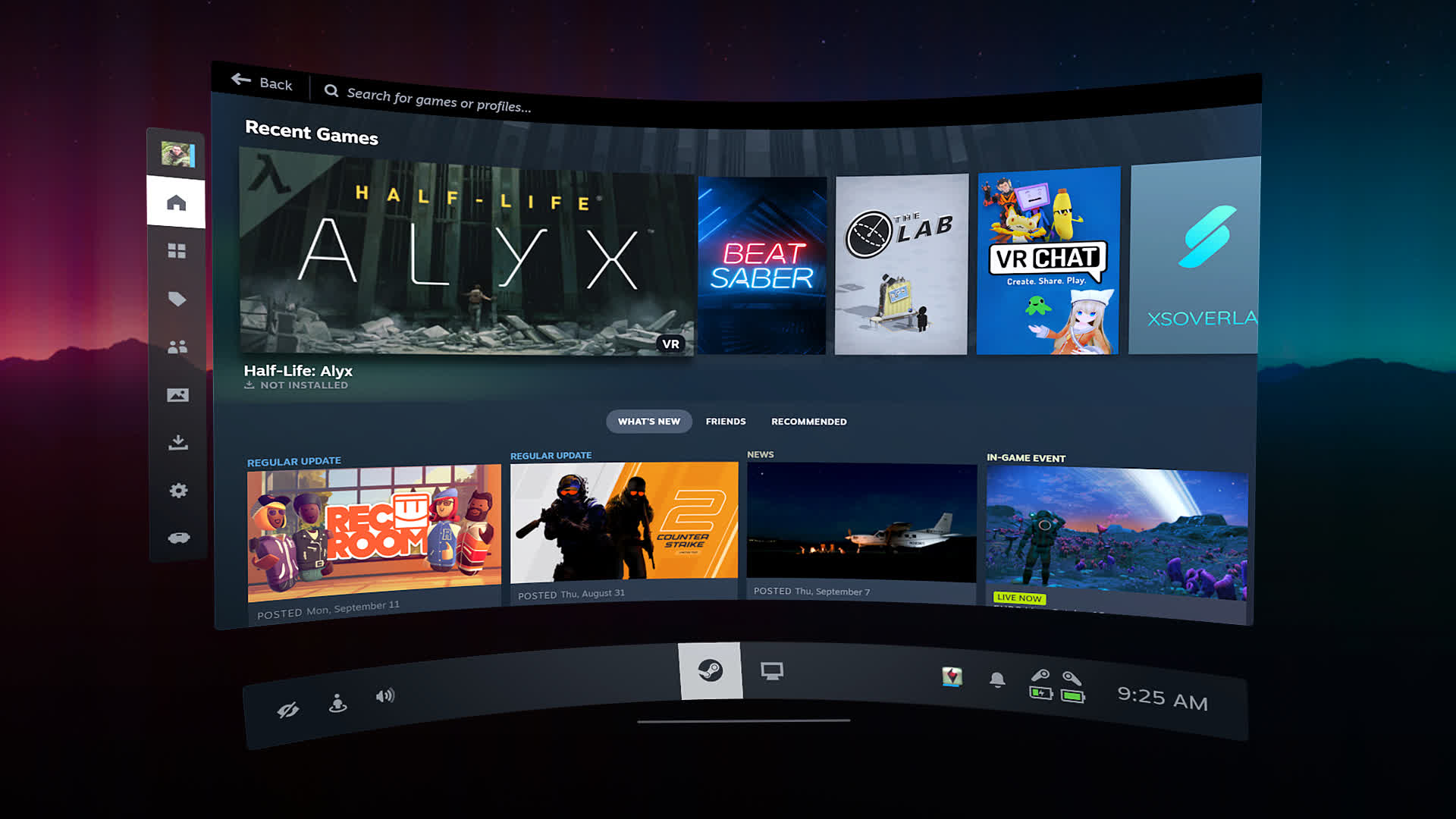Something to look forward to: Valve has been a major proponent of high-end VR, having released their own headset and developed one of the most critically acclaimed VR games. After other recent projects like the Steam Deck diverted the company's attention away from VR, Valve is giving it renewed attention with a major interface update and hopefully more to come.
SteamVR 2.0 looks like a complete platform overhaul and is now available to all users in beta. The update refreshes the launcher's interface with Valve expected to share more VR-related developments later this year.
While the company rebuilt Steam Big Picture mode to reflect the more controller-friendly Steam Deck UI in February, SteamVR had retained the client legacy looks until now. SteamVR 2.0 adapts the new interface to VR headsets, unifying it across all of the platform's form factors.
New features include additional keyboard languages, Steam chat and voice chat integration, and a reorganized storefront. Similar to how the Steam Deck store highlights Deck-verified games, the new SteamVR store facilitates finding VR titles.

Entering the SteamVR 2.0 beta requires opting into betas for the Steam client and SteamVR app. Users can engage the first under Settings > Interface > Client Beta Participation. Then, right-click SteamVR in the library and navigate to Properties > Betas > Beta Participation.
Valve didn't offer a roadmap for when SteamVR 2.0 will hit a final state or what else is coming, but promised to reveal more in the coming weeks. The update is likely to stir renewed rumors of a successor to the company's Valve Index headset.
Launched in 2019, the Index has received ample competition from the Meta Quest 2 – the most popular headset owing to its affordability – and PlayStation VR 2. Meta is set to ship the Quest 3 this year, and Apple will release the $3,500 Vision Pro AR "spatial computer" in early 2024.
The six-year wait could be one of the most dramatic examples of "Valve Time"
Valve had originally announced SteamVR 2.0 in 2017, saying it would be ready within a year. The six-year wait could be one of the most dramatic examples of "Valve Time."
Back in those days, CEO Gabe Newell also said Valve was developing three "full" VR games. That was in 2017. They did ship Half-Life: Alyx in 2020, but nothing has followed the innovative and critically lauded first-person shooter since. The SteamVR 2.0 update could raise hopes of seeing a second flagship title from Valve soon.
